Martín Carlevaro, a specialist in charge of the infrastructure area and APPs of our study, takes a view of the possibilities for large investments in various sectors through different hiring mechanisms.
To read the full articles:
Martín Carlevaro, a specialist in charge of the infrastructure area and APPs of our study, takes a view of the possibilities for large investments in various sectors through different hiring mechanisms.
To read the full articles:
On September 17, 2020, the Tax Administration (“SET”) published, for the first time, General Resolution No. 65/20, which sets out the procedure and requirements for obtaining the tax residence certificate («TRC») for the application of agreements in order to avoid double taxation («DTA»).
Until recently, Paraguay had only two broad DTAs following a bit of the OECD and UN models (with Chile and the Republic of China – Taiwan), and three agreements to avoid double taxation regarding certain types of incomes (arising mainly from charges such as freight). However, between 2018 and 2019, three more DTAs were approved (with Uruguay, the United Arab Emirates and Qatar) which entered into force not long ago.
This shows the slow but important progress that we have in our network of international treaties, which seek not only to encourage foreign investment and assign each other’s tax sovereignty, but also to exchange information between the contracting States.
Bearing the above in mind, the SET issued RG No. 65/20 to bring transparency and legal security to the tax system, since a general provision that generates certainty about which document could or should be used as CRT for the application of the two broad DTAs did not exist before.
The resolution establishes the application requirements (having a Tax ID (RUC), being in good standing with tax obligations and a copy of the taxpayer or the representative’s identity card) which during the health emergency must be done via email, and then in person at the office until the «Marangatu» system includes such function.
The Tax Administration should analyze the application and, within ten business days following the filing date, release the acceptance or rejection and communicate such decision through the “Marandu” email box and at the email address stated in the application. The awarded certificate will be valid for one year.
An outstanding issue, still to be defined how would be applied, is the provision about applications for TRC involving natural persons, since in these cases the “Migration Movement Certificate” issued by the General Directorate of Migration is required, for the period of validity of said certificate.
In fact, in the domestic tax law field, a natural person is considered a tax resident since 2020 provided that the immigration requirements are met (which basically consist on holding an identity card and entering in the country at least one once every three years), an important and applauded fact, since before the clarification of the regulatory decree of the Non-Resident Income Tax (“INR”), taxpayers were somewhat uneasy in this regard (especially regarding taxes on dividends allocation).
However, the DTAs normally establish as the first rule to define a resident of certain State those who, by virtue of the legislation of that State, are subject to tax in that State due to their domicile, residence, place of incorporation, registered address, or other criteria of a similar nature.
When, by virtue of the preceding provision, a person is a resident in both countries, then a series of tie-breaking rules apply, which is ultimately decided by the person’s nationality. And if the subject has both, then it is defined by agreement of the States parties.
Therefore, we will have to wait and see how the issuance of TRC to natural persons is applied in practice.
Finally, the resolution also establishes minimum requirements that a TRC issued by another State must meet and, if written in a language other than Spanish, it must be translated by a certified translator, and kept attached to the TRC during the term set as statute of limitations.
For more information, contact mauro.mascareno@berke.com.py.
On September 23, through oral and public trial proceedings, a sentence of 2 years and 6 months of imprisonment was imposed to the owner of a Distribution point for the criminal act of counterfeiting OMO products as Perpetrator.
Federico Huttemann, Jorge Kronawetter, Enrique Guerrero, Enrique Kronawetter and Martín Romero, Attorneys at Law, representing UNILEVER DE PARAGUAY S.A. promoted the investigation, trial and conviction of the person responsible for the crime.
It should be noted that this resolution constitutes an extremely important and unprecedented fact in the Criminal Justice of our country, since investigations of this type of criminal acts usually end through agreements on remedies or abbreviated trials.
The convicted person was declared perpetrator of the criminal act of infringing trademark law and judged for the same, therefore, from that moment his criminal record will reflect said conviction.
In this case, our action not only achieved the application of a prison sentence of two years and six months to the person responsible, but also the obligation to publish the sentence in a widely circulated newspaper, a provision that contributed to communicating consumers in general about the fight against piracy carried out by our client.
Recently, the SET issued General Resolution No. 62/20 (the “RG”) through which a number of provisions related to IDU, INR and VAT were clarified.
The RG clarifies and confirms the decision about the reduced IDU rate (5% for residents and 10% for non-residents) being in force until December 31, 2020 and applied to profits and results generated for the fiscal years ending on 12/31/19, 04/30/20 and 06/30/20. Indeed, although this was clear, some professionals understood that this was not the case
As for the INR, it is clarified that any service provided from abroad that serves the activity carried out by the IRE taxpayer and allows the use or exploitation of the service in Paraguay, will be taxed by the INR, and it is therefore confirmed that when the service is used or fully exploited abroad, it is not reached by the INR. The first should be deeply analyzed since there could be certain services that by law are not covered by the INR, but through this resolution (a lower level rule) they could be taxed by the same.
Likewise, it is clarified what is the taxable base of INR applicable to determinate freight and insurance in international sales contracts, in which these concepts are not expressly determined.
Therefore, the value of freight is presumed as 10% of the operation amount, over which the presumed profit of 30% is affected for the purposes of the INR, and 15% rate of this tax should be applied, obtaining an effective percentage of 0.45% of the total value of the invoice.
| Total amount | 100,000 | |
| Freight | 10% | 10,000 |
| Presumed profit | 30% | 3,000 |
| INR rate | 15% | 450 |
| Effective percentage | 0.45% |
The price of insurance is presumed to be 10% of the value of freight, over which the presumed profit of 30% is affected for the purposes of the INR, and 15% rate of this tax should be applied, obtaining an effective percentage of 0.045% of the total value of the invoice
| Freight | 10,000 | |
| Insurance | 10% | 1,000 |
| Presumed profit | 30% | 300 |
| INR rate | 15% | 45 |
| Effective percentage | 0.045% |
The tax base of VAT on services provided free of charge is added through this resolution, taking into account the price of the service in the internal market, which is defined as the average price in the last 6 months assigned by the taxpayer to a similar service. At this point, it must be highlighted that this element was not included in Law No. 6380/19 and, considering the constitutional provision that taxes and taxable matters can only be created by law, could be declared unconstitutional.
Definition and scope of digital services in VAT are also clarified and confirmed, including those of computer assistance, software development and maintenance, provided that they are rendered exclusively via the internet
Another important piece of news is the clarification about the VAT application to agricultural sharecropping and capitalization contracts, which lead us back to the system used in Iragro (distribution of fruits is not taxed, VAT is only applied when selling the products).
For further clarification, our specialists may be contacted at the following email addresses: mauro.mascareno@berke.com.py, federico.valinotti@berke.com.py and carlos.vargas@berke.com.py.
BKM Berkemeyer
The House of Representatives will be debating on a recently filed bill to amend Art. 52 of Emergency Law No. 6524/2020, whereby relations between civil and commercial landlords and tenants are regulated, in the framework of the COVID-19 pandemic.
The first three paragraphs of the new Art. 52 of the Emergency Law, according to the Bill, replicate and extend the general financial rule for rental fees and limitation of evictions until September of this year. The fourth – and last – paragraph presents, on the other hand, a novelty with respect to the law currently in force, since it refers exclusively to commercial rental or lease and also regulates termination of contracts due to force majeure.
Modifications refer to the financing term of the unpaid fees’ percentage, they must be completely cancelled within the following ten months after October 2020, thus increasing the repayment term of the prorated debt since the current Law 6524/2020 sets the same at 6 months. The legislator expressly establishes that during this period the landlord (creditor of the royalties) will not have the right to receive interest over the owed difference; a provision that does not exist in the current Emergency Law.
Indeed, it is the last paragraph of the Bill the most novel. There are no traces of said section in the Emergency Law. The same, which applies exclusively to commercial rentals, providing «commercial rentals related to activities suspended since March 10, 2020, and not authorized during the various phases of the smart quarantine, may choose to pay only the 40% or, where appropriate, to terminate the contract, when the purpose of the contract is not fulfilled, due to force majeure».
This last paragraph should be approached with great caution, and brought to the legislators’ attention, since it concerns core issues regarding the obligations and contracts system outlined by the Civil Code.
On one hand, a partial and ex lege exemption from paying part of rents is established in favor of tenants who meet the requirements listed in the proposed legal document, namely: a) it must be a commercial rental; and, b) the concerned commercial activity must be included among those suspended and not reactivated by the health emergency laws. That is, commercial tenants would only be required (if the Bill is approved) 40% of the contractually agreed rental fee.
Additionally, tenants may choose not to pay said reduced fee and terminate the bond, thereby terminating the contract. It is understood that this right to terminate the rental contract would be reserved solely for the tenant, although it is not clear in the current text whether both parties would have such right, so it is expected that this issue is clarified at the congress debate prior to the enactment of the law.
The basis of the options made available to the tenant is the casus; that is to say, fortuitous event or force majeure. It is here, however, where legislators must proceed with caution so as not to generate an inconsistency in the private law system. In fact and in strict accordance with principles, force majeure as a means of extinction of obligations (provided by Art. 628 et seq. of the Civil Code) does not apply to gender obligations, as the obligation to give sums of money is, by the simple rule according to which «gender never perishes.»
However, and despite the difficulties that terminological inaccuracy could lead to, the last section of the Bill in terms of modifying the contractual economy by reducing rental payments could be framed within the figure of unforeseen due to supervening causes; typically contractual filiation remedy, provided for by Art. 672 of the Civil Code. Unlike the casus, it is not a question of the impossibility of fulfilling an obligation, but rather that it is disproportionately burdensome for one of the parties. It is here where the so-called «adequacy of the contract» comes into the scenario as a possibility, which the doctrine also often calls «shared effort». In this case, the adequacy of the contract will no longer be the result of a fair negotiation on the distribution of obligations and rights, but it is the law itself that would provide the solution by establishing a discount of 60% of the rental price. Notwithstanding this, by application of the autonomy of will, the parties could agree other adjustments to the commercial rental contract (which could include renegotiation of prices, extension of terms, changes in scope, etc.) in an attempt to reestablish the performance balance (which includes the economic equation) that the parties took into account when originally entering into the contract
Unlike common regulations, where the party damaged by unforeseeable and extraordinary events that constitute force majeure can only demand the resolution of the contractual relationship, the Bill gives the tenant (presumed damaged party) the power to choose between the modification of the contract (substantially reducing the rental price) and the termination of the bond due to force majeure. Moreover, the article as written seems to deprive the landlord from the possibility of offering an equitable modification of the contract to prevent a resolution claim by the tenant -a faculty that, it is worth mentioning, is provided by the Civil Code.
Another issue of interest that the proposed legislative amendment raises is the classification of the event qualifying as force majeure, thereby exempting whoever invokes it from the burden of proof. In other words, any doubts about the application of the figure of force majeure to commercial rentals and under the conditions described are erased, without the need for prior interpretation by the intervening judge regarding facts and applicable law (and their caused relationship).
Besides the above stated, there are other aspects that the Bill leaves without solution, and that could bring practical problems of applicability. A striking omission, which directly concerns the exercise of the power provided for in the last section of said article, is related to the state of default. In fact, it is not established whether tenants in default before the entry into force of the law would be able to invoke the exception rule; an issue that should be clarified given that the regime outlined by the civil code prevents defaulters from invoking either the casus or unforeseen facts.
Also, the issue regarding past debts, assumed under the current Emergency Law, which is intended to be modified, is not resolved. It does not regulate, and it would be good if it does, if the proposed benefit (reducing the commercial rental fee to 40% of the value) is applied for the entire period of the health emergency (that is, from March until the quarantine ends), or just from the date in which the Bill entered into force onwards. Similarly, there is no mention of the destination given to the financing granted by the Emergency Law for the percentage of unpaid rents; would they continue to enjoy this financing, or debits should be fully cancelled to use the power established in the new fourth paragraph of Art. 52? All these under the principle of non-retroactivity of the law, so we consider prudent that those who took the benefit provided by the Emergency Law must return to the landlord the unpaid 60% within the deadlines established by law and, if after the enactment of the new Bill, they choose the reduction of the rental fee, this will apply in the future and not retroactively.
These aspects, which make the executive part of current lease contracts, must be clearly resolved by the legislator, in order to achieve legal certainty, avoid disputes, and facilitate the application of the law.
Briefness of the modifications proposed by the legislators would seem to suggest their irrelevance. However, and as indicated, appearance could not be more deceptive; since the reform would affect core elements of the contractual system. In view of this, legislators are advised to be prudent, and the reform will certainly be the subject of further studies and certain clarifications are expected to be mentioned prior to its approval.
For further clarifications, our specialists may be contacted at the following email addresses: Carla.Sosa@berke.com.py; Martin.Carlevaro@berke.com.py
BKM Berkemeyer
Recently, Decree No. 3988/2020 was issued to regulate Law No. 6480/2020 which created Simplified Joint Stock Companies (EAS). Said Decree establishes the process for opening EAS, registration and recordal procedures, and determining issues such as subscription and integration of capital stock.
The incorporation of this new legal figure in our legislation constitutes an additional option for investments in the country. The innovative aspects of this new tool include the possibility of having a single partner, short time for the establishment of the company, and a broad corporate purpose since it allows the creation of EAS to be engaged in any legal activity.
In this sense, we believe it is pertinent to mention that the procedure for opening an EAS can be carried out entirely via the web, through the SUACE portal and by filling out a single registration form. A pro forma bylaw can be used, or different bylaws, which must be approved. In both cases, speed in the opening process is guaranteed; setting a period of 3 business days in case the pro forma bylaws are used.
Additionally, notice on the approval of the file, and further start of the EAS, will be made via email to the user.
It is important to mention that, for the process of opening, closing, dissolving, liquidating and transforming an EAS, as well as any other modification that affects its structure, an electronic signature or digital signature may be used.
Regarding the limitations, it is important to bear in mind that the shares and other securities issued by the EAS may not be registered or traded at the Stocks and Products Exchange of Asuncion or at any other Stock Exchange entity.
Finally, we mention that Resolutions of the Ministry of Industry and Commerce and the Ministry of Finance that will establish the internal mechanisms to process the first EAS opening files are pending.
It will be a pleasure for the BKM team to assist you through the required legal advice.
For further information, please contact:
Carla Sosa: carla.sosa@berke.com.py
Leyla Apud: leyla.apud@berke.com.py
The Executive Branch, through Decree No. 3827/2020 dated 07/15/2020, exceptionally suspended the application of pecuniary sanctions and non- sanctioning measures for failing to meet the term established to exchange shares.
These regulations suspend the application of fines (pecuniary sanctions) and non-sanctioning measures established in Law 6399/2019, until 09/14/2020, taking into account the extraordinary conditions caused by the COVID-19 pandemic. Therefore, all those companies that carry out the exchange of shares as of 09/15/2020, will be subject to sanctions.
Likewise, obligation to suspend the economic rights of holders that do not exchange their bearer shares as of 09/15/2020 is established for Public Limited Companies, until they are actually exchanged fulfilling all formalities.
Finally, regarding meetings of shareholders, after 09/14/2020 meetings may be held only with registered shareholders.
For more information contact us at:
BKM|BERKEMEYER
Decree N° 3881/20 was published on 07/28/2020; tax measures taken by the Tax Administration (SET) as a result of the health emergency status in the country caused by the COVID-19 pandemic are expanded.
In fact, the provisions establish a transitory regime related to Value Added Tax (VAT) applicable to services involving hotel accommodations, restaurants, catering for events in the local market, sale of tourist packages destined for Paraguay, as well as the leasing of real estate for these economic activities
Specifically, the VAT taxpayer engaged in the aforementioned activities shall calculate the tax based on 50% of the net accrued price, and then apply the 10% rate. In the sales receipt, the respective percentages must be entered in the «exempt» or «taxed» columns.
This regime benefits taxpayers registered in the RUC under the following activities:
Additionally, this benefit is applicable to those taxpayers who rent and/or allow the use of real estate to those who are engaged in the activities described above.
This regime will be in effect from 08/01/2020 to 06/30/2021.
For any information you consider necessary, please contact us.
BKM Berkemeyer
Recently, the Ministry of Industry and Commerce issued the long-awaited regulation for opening Simplified Joint Stock Companies or “EAS” (according to its initials in Spanish) through the Unified System for Opening and Closing Companies – SUACE
This way, the process for opening an EAS will be performed by registering the electronic file in the SUACE System, which is complete when the USER (founder shareholder/s of an EAS) creates an electronic identity on www.paraguay.gov.py, validates the same through SUACE and fills the single registration form.
Finally, the User must upload this document and the Articles of Incorporation, once they are printed / signed / scanned, as well as all the required supporting documentation, and “register” the “EAS” opening electronic file. Electronic or digital signature may be used.
The electronic file will be sent to the General Directorate of Legal Entities and Final Beneficiaries for analysis, approval and registration.
The Regulation establishes minimum deadlines for notices, which shall not exceed 3 business days in any case, so the process for opening an EAS is currently the fastest in the Paraguayan legal system
Said Resolution does not include transformation, closure, dissolution and liquidation processes of EAS, which will be regulated in specific resolutions to be issued by the same Office.
For more information, contact us at
– carla.sosa@berke.com.py
– federico.valinotti@berke.com.py
BKM|BERKEMEYER
Through Resolution No. 69/2020, published on Saturday, November 7th, the Tax Administration sets regulations for certain aspects of the Personal Income Tax, providing at the same time new forms (sworn statements) to submit tax settlements.
The Tax Administration «construes» Law No. 6380/2019 and defines the scope according to their criteria, divided into two general chapters of: i) Capital income and, ii) Incomes derived from personal services, addressing also matters regarding related documentation and records
Scope of capital income is specified in relation to matters such as: anticipated inheritance, real estate leasing, withholdings, dividends, registration/cancellation of duties, among others.
On the other hand, income from personal services refers to income in kind, dependents, income by minors, alimonies, subsidies, recreation, prepaid medicine, housing, construction/remodeling/fixing, documentation/valid receipts, withholdings.
The new development in this regulation is the fact that it clarifies that real estate sales by individuals should be documented only by withholding receipts and not by issuing exempt invoices. This is extremely important as implies that the sale and purchase prices are not required to be stated when declaring VAT amounts because they are not covered by said type of tax.
For more information, please contact
federico.valinotti@berke.com.py
carlos.vargas@berke.com.py
BKM | BERKEMEYER


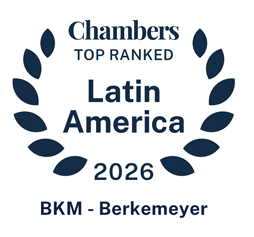








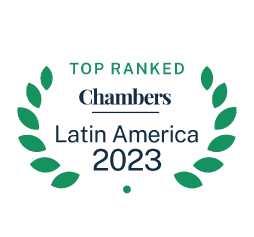
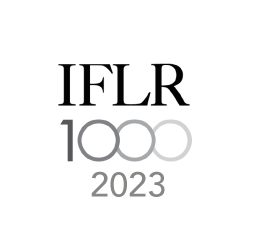
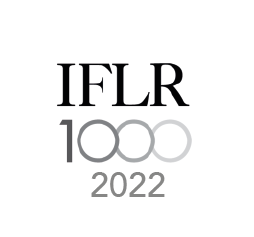
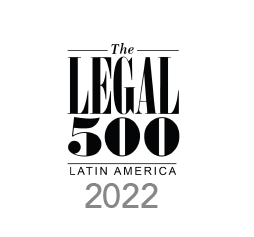
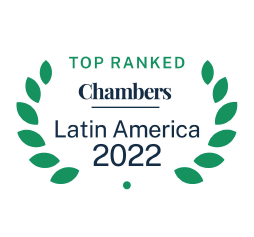

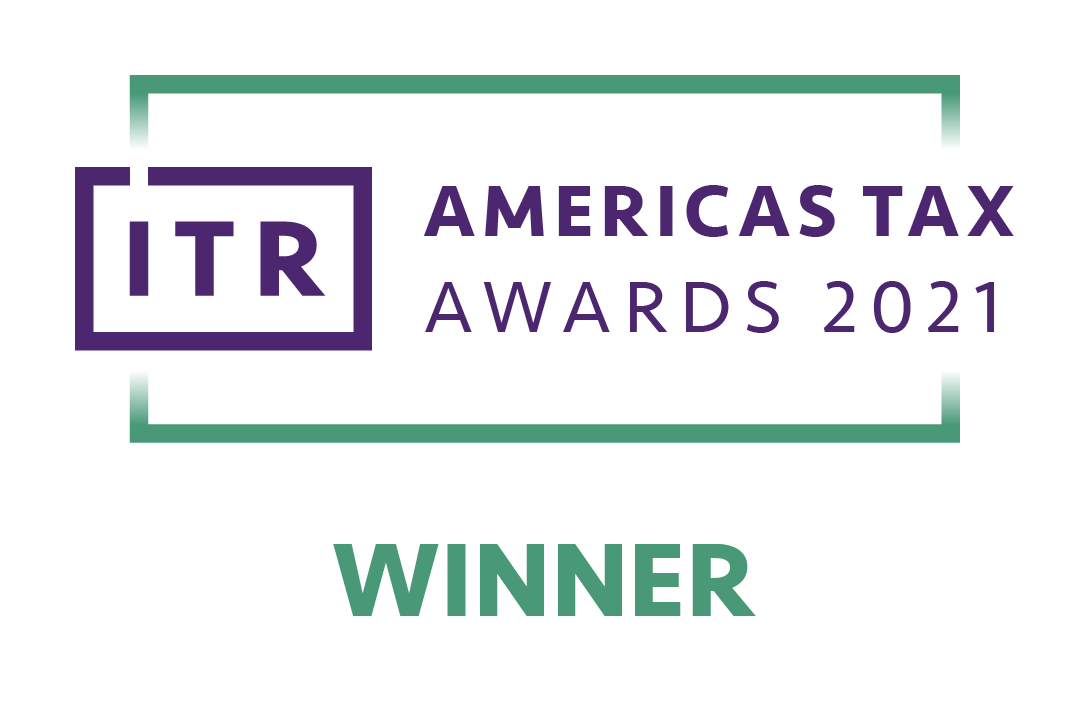
World Trade Center / Aviadores del Chaco 2050. Torre 3, Piso 19.
Edificio Jacarandá / Benjamín Constant 835 Asunción Paraguay.
law@berke.com.py | (+595 21) 446 706
www.berke.com.py